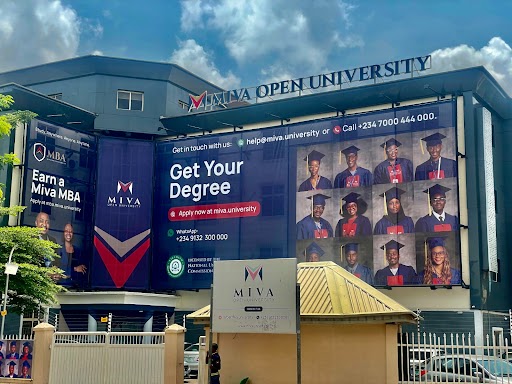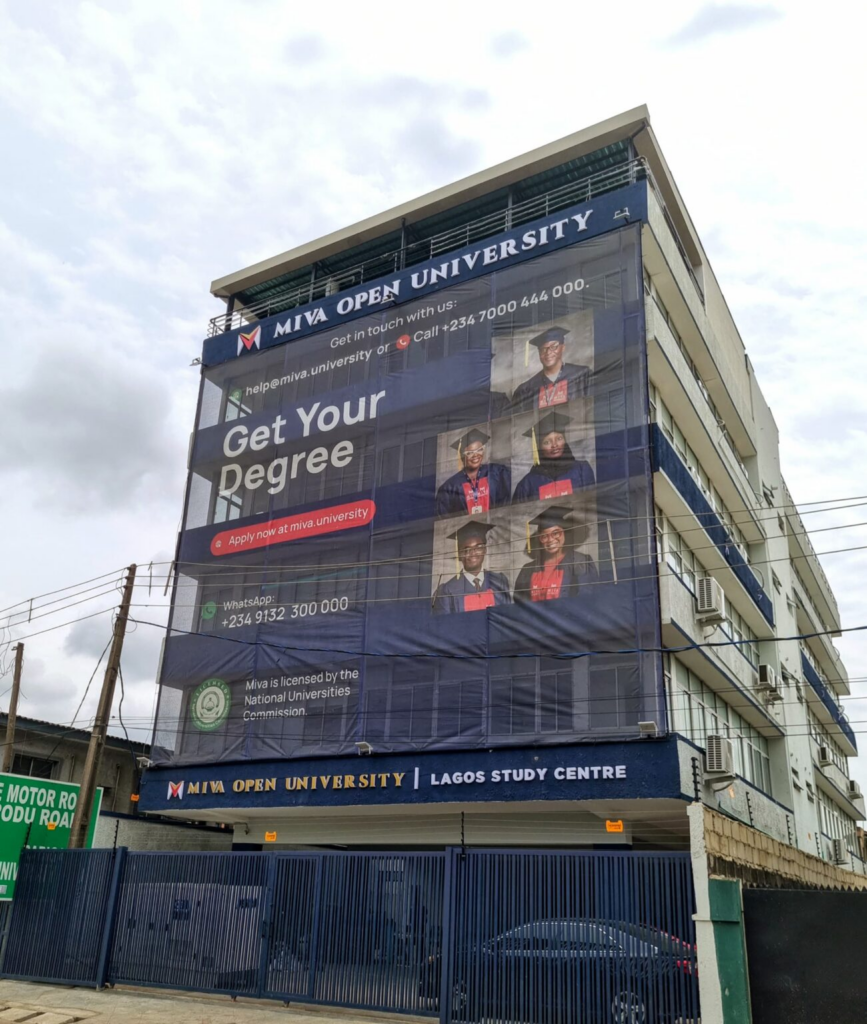This is not a crisis waiting to happen. It is one we are already living. Every year, millions of children drop out of school not because they lack ambition but because the system lacks room. Every year, universities turn away talented young people simply because there are not enough seats.
But here’s what gives me hope: the tools we need to fix this already exist. What’s missing isn’t technology or talent; it’s execution at scale, grounded in context. That’s the lesson I’ve drawn from building uLesson for basic education learners and Miva Open University for tertiary students.
In this piece, I want to share what it has actually taken to move from ambition to impact and what I believe it will take for the rest of us.
Why I Started uLesson and Why Now Was the Time
Africa is home to the youngest population in the world, with over 60% under the age of 25. At the same time, mobile internet penetration is rising sharply. By 2025, it’s projected that over 500 million Africans will be connected.

This demographic dividend is both a huge opportunity and a looming crisis, depending on how we respond. Education is the critical bridge. This is the moment to act, while there is still time to strengthen the systems that must support the growing wave of young people stepping into the future.
My passion for education comes from my own life. I was lucky to have studied in institutions that opened doors for me and widened my perspective on the world. However, access to that kind of education in Africa remains the exception, not the norm. We are the youngest and fastest-growing population in the world. There’s no reason why every African child should not benefit from the same opportunities I had.
The idea of building an education company had been with me for over a decade. But I knew the timing had to be right. And it wasn’t until recently. Today, mobile internet access across Africa is growing rapidly. Half a billion people are expected to be connected by 2025. More importantly, mindsets are shifting: people are more open to the idea that great education can happen outside traditional classrooms. That was the signal I needed.
From Scrappy Science Lessons to a Scalable Platform
My very first stab at edtech came years ago when I recorded a few science lessons on video. They were scrappy, monotonous, and far from polished. Yet, to my surprise, I was able to monetise them. That experience told me something important: if learners could find value in that basic content, then a properly designed, tech-enabled solution could go much further.
So I spent months studying what others had built in edtech companies in India, Brazil, Indonesia, and the US. I kept asking: Why did they choose this path and not another? Could we build something tailored to the realities of African learners? I tested the idea with colleagues across Nigeria and began assembling a team passionate about making learning joyful, not painful.
What was most surprising was the richness of feedback we received from even the earliest users. Parents shared stories of children staying up late to watch lessons repeatedly. Some students even recorded their own voice-overs for concepts they didn’t fully understand and played them back as study aids.

These behaviours signalled something powerful: users were hungry not just for access but for ownership of their learning journey. That insight drove us to double down on making the platform personal, intuitive, and empowering.
Building with the African Learner in Mind
The typical Nigerian student learns by rote. Learning becomes a chore, or worse, something to fear. With uLesson, we wanted to change that completely. Our goal was simple but bold: make learning enjoyable, visual, localised, and inspiring. And it worked. We’ve seen students fall in love with maths and science for the first time; subjects that once intimidated them are now accessible and fun.
We discovered early on that local relevance was everything. Even when students had access to global content on YouTube, they told us our lessons resonated more because they were built with them in mind. A student once told us, “This is the first time I’ve understood biology in a way that makes sense to my life.”
We also couldn’t afford to be passive. After someone downloaded the app, we got on the phone. We asked: Why did you sign up? How did you find us? Then we walked them through how to use the platform. This level of personal connection helped us build trust and improve the product. We learnt that payments, too, needed to meet people where they were. In a continent where credit card usage is limited, we had to integrate mobile money, bank transfers, and other local payment systems.
From App to University: Why Miva Demanded a New Approach
While uLesson focuses on foundational education, Miva tackles a different challenge entirely: building full-fledged institutions. Miva is the first licensed and operational private open university in Nigeria. Achieving an operational licence in under a year was no small feat. However, we recognised that Africa’s higher education gap was urgent: only 9% of Nigerian secondary school leavers secure university admission, and millions are left behind each year.
At Miva, we couldn’t just replicate uLesson. A university needs a robust curriculum, regulatory alignment, learner support, career services, faculty recruitment, and community. We had to build a full-stack system, not just a content platform.


For example, we recently developed and launched MIND (Miva Interactive Neural Dialogue), Miva’s very own AI-powered conversational learning engine, designed to facilitate one-on-one interactive discussions that help students review key concepts and receive instant feedback. Tools like this are not gimmicks; they’re essential to scaling personalised support in a system where one adviser might otherwise serve 500 students.
Principles That Hold True Across Basic Education and Tertiary
After years of building, I’ve come to believe that effective education at scale depends on five key principles. First, build mobile-first and scale-conscious. Platforms must be designed from the outset to serve thousands, then millions. You cannot retrofit a scale. With uLesson, we designed video compression and offline access from day one. At Miva, we ensured our entire university infrastructure worked seamlessly on low-end smartphones.
Second, localisation is non-negotiable. Learners need to see themselves culturally, linguistically, and contextually in what they’re being taught. We don’t just translate; we embed context. Chemistry examples use Nigerian household items. Business case studies reference the Nigerian and international business environments.
Third, think in systems, not apps. Content alone doesn’t solve the problem. You need payments, distribution, support, policy, and accountability working together. For both platforms, we built internal dashboards, learner analytics, feedback loops, and human support channels, not just content libraries.
Fourth, invest in real relationships with learners. In emerging markets, people don’t just download and go. Trust must be earned, one conversation at a time. We follow up with every paying user. We listen to their stories. One learner once told us that hearing a Nigerian explain photosynthesis changed her entire outlook on science.
Fifth, execution is everything. As I often say, stamina matters more than brilliance. You have to keep showing up every day and keep solving. You cannot substitute grit. There were months when our team worked 14-hour days building, testing, and improving with no guarantee of success. But we showed up, again and again.
A Call to Builders, Policymakers, and Funders
Africa’s education crisis cannot be solved by any single player. We need collaborative models that bring together government legitimacy, private-sector speed, and donor capital. We need policies that enable innovation without compromising quality. And we need bold investors willing to take long-term bets on the systems that will define Africa’s future, not just its next funding round.
The future of education in Africa will not be built in conference rooms. It will be built on the ground, by people willing to test, fail, learn, and try again. Platforms like uLesson and Miva show what’s possible, but only when we stop thinking of education as a one-size-fits-all product and start thinking of it as a living, breathing system.
We don’t need more pilots. We need committed investment from both government and the private sector to build institutions designed for our reality: young populations, limited infrastructure, and boundless ambition. The future will belong to those who execute with context, humility, and relentless purpose.
Scale is possible. But it takes iteration, context, and courage. The work is far from done. But I believe, more than ever, that we can deliver education at scale. We just have to keep showing up.


